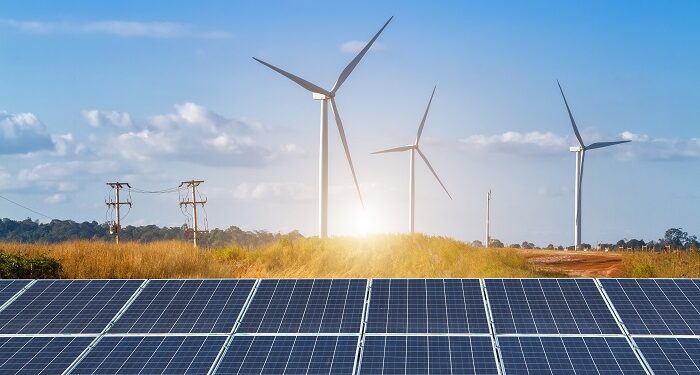The Global Push for a Just Transition in Energy Jobs
For years, energy workers from the fossil fuel sector have been growing increasingly concerned about their future working in the sector. As many countries invest heavily in renewable energy, in a bid to decrease dependence on oil, gas, and coal, many traditional energy jobs are disappearing. However, the knowledge and experience that workers in this sector hold could be well-suited to new jobs in the renewable energy industry, so long as governments invest in a just transition.
According to the European Union definition, a “Just transition is the term used to describe the transition to a climate-neutral economy while securing the future and livelihoods of workers and their communities. A just transition to a climate-neutral economy provides and guarantees better and decent jobs, social protection, more training opportunities and greater job security for all workers affected by global warming and climate change policies.” Meanwhile, the International Labour Organisation (ILO) says a just transition means “greening the economy in a way that is as fair and inclusive as possible to everyone concerned, creating decent work opportunities and leaving no one behind.”
Workers are key to the functioning of the global energy network. Those employed in both the fossil fuel and renewable energy sectors have the skills and experience needed to ensure that consumers have access to stable supplies of power and heating. Around 67.5 million people were working in the energy sector globally in 2023, with around 34.8 million jobs in the renewable energy sector and 32.6 million jobs in the fossil fuel industry.
In 2015, the ILO published Just Transition Guidelines, which included measures such as labour market policies to create new decent jobs and limit job losses, skills development, mechanisms for social dialogue, guidance on policy coherence, occupational safety and health policies, and social protection policies to safeguard workers. In 2023, the agency adopted a resolution based on the guidelines.
In Southeast Asia, a region that continues to rely heavily on fossil fuels, some governments have begun to invest in large-scale renewable energy projects, in some cases with support from international donors. The coal mining industry employs approximately 180,000, 86,000, and 4,000 people in Indonesia, Vietnam and the Philippines, respectively, while many workers in Malaysia are employed in the liquefied natural gas industry.
As the countries gradually decrease their dependence on fossil fuels, it will be important to train workers to transition to work in renewable energy projects to help avoid increased unemployment. Several transition policies already exist across the region, such as the ASEAN Plan of Action for Energy Cooperation (APAEC) 2026–2030, “Advancing Regional Cooperation in Ensuring Energy Security and Accelerating Decarbonisation for a Just and Inclusive Energy Transition”.
The 2021 launch of the Just Energy Transition Partnership (JETP) at COP26, which provides $20 billion and $15.5 billion to Indonesia and Vietnam, respectively, to phase out fossil fuels and increase the contribution of renewables, also supports this aim. However, the implementation of these policies is less simple due to pushback from fossil fuel lobbies, as well as a lack of funding and political will.
In India, the world’s third-largest energy consumer, workers’ unions are increasingly demanding a just transition as the government gradually begins to close the country’s coal mines and more renewable energy capacity is deployed. There are around 300,000 permanent and 500,000 contract workers currently employed in India’s coal industry, while over 1.4 million people depend on the industry for their livelihoods.
While some coal workers have found jobs in the renewable energy sector, trade unions have raised concerns about the safety standards and wages in certain industries. For example, workers in solar farms face threats such as snake bites and electric shocks in the field, and many are paid extremely low wages, at around $ 3.2 a day.
Meanwhile, in the European Union, there are 31 coal regions in 11 EU countries, with around 200,000 workers employed in coal mines and power plants. To manage the just transition of these workers, the EU has introduced the COALition initiative, which brings together researchers, policymakers, businesses, and communities in regional hubs to shape locally tailored solutions. The EU aims to establish a regional framework for a just transition to ensure that all member states can successfully shift to green without the worry of high unemployment and economic burden.
Panagiotis Grammelis, the research director at the Centre for Research and Technology Hellas in Greece, explained, “We are leaving the coal era and moving into the renewables era… We have common problems, common policy issues – and we want a common innovation model to address them.”
Several countries and regions of the world are establishing frameworks to support a just transition for workers in the energy sector. However, some regions are doing this in a more collaborative way than others. The success of these frameworks will come down to the effectiveness of implementation by individual state governments, but they could ultimately support a green transition, limit unemployment growth, and reduce training costs through the upskilling of workers.








